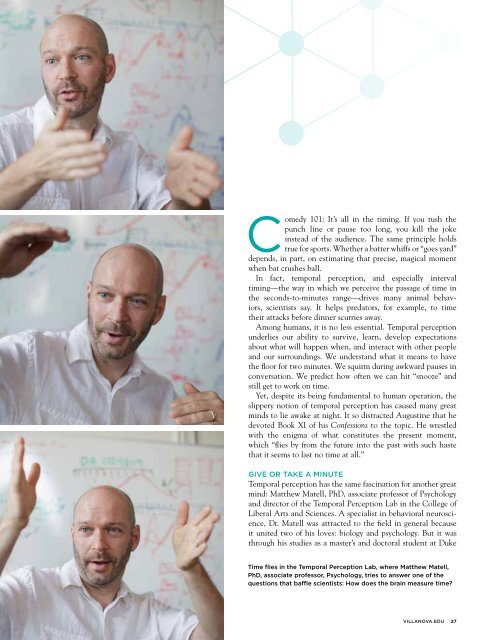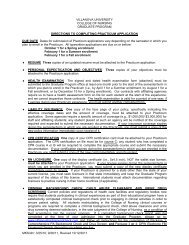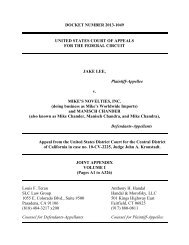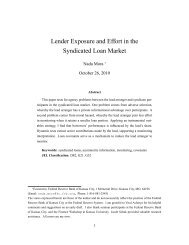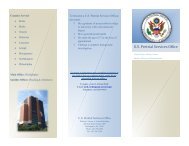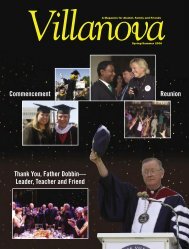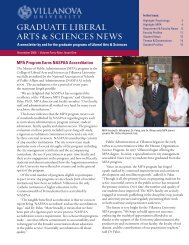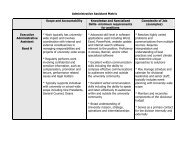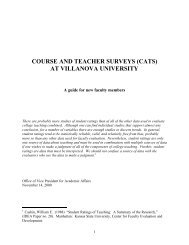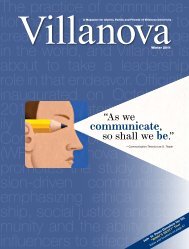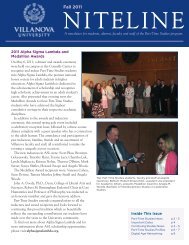Create successful ePaper yourself
Turn your PDF publications into a flip-book with our unique Google optimized e-Paper software.
Comedy 101: It’s all in the timing. If you rush thepunch line or pause too long, you kill the jokeinstead of the audience. The same principle holdstrue for sports. Whether a batter whiffs or “goes yard”depends, in part, on estimating that precise, magical momentwhen bat crushes ball.In fact, temporal perception, and especially intervaltiming—the way in which we perceive the passage of time inthe seconds-to-minutes range—drives many animal behaviors,scientists say. It helps predators, for example, to timetheir attacks before dinner scurries away.Among humans, it is no less essential. Temporal perceptionunderlies our ability to survive, learn, develop expectationsabout what will happen when, and interact with other peopleand our surroundings. We understand what it means to havethe floor for two minutes. We squirm during awkward pauses inconversation. We predict how often we can hit “snooze” andstill get to work on time.Yet, despite its being fundamental to human operation, theslippery notion of temporal perception has caused many greatminds to lie awake at night. It so distracted Augustine that hedevoted Book XI of his Confessions to the topic. He wrestledwith the enigma of what constitutes the present moment,which “flies by from the future into the past with such hastethat it seems to last no time at all.”Give or take a minuteTemporal perception has the same fascination for another greatmind: Matthew Matell, PhD, associate professor of Psychologyand director of the Temporal Perception Lab in the College ofLiberal Arts and Sciences. A specialist in behavioral neuroscience,Dr. Matell was attracted to the field in general becauseit united two of his loves: biology and psychology. But it wasthrough his studies as a master’s and doctoral student at DukeTime flies in the Temporal Perception Lab, where Matthew Matell,PhD, associate professor, Psychology, tries to answer one of thequestions that baffle scientists: How does the brain measure time?villanova.edu 27


